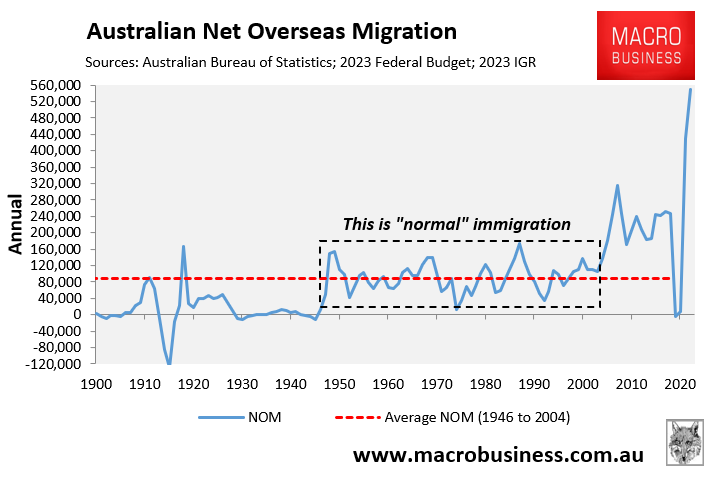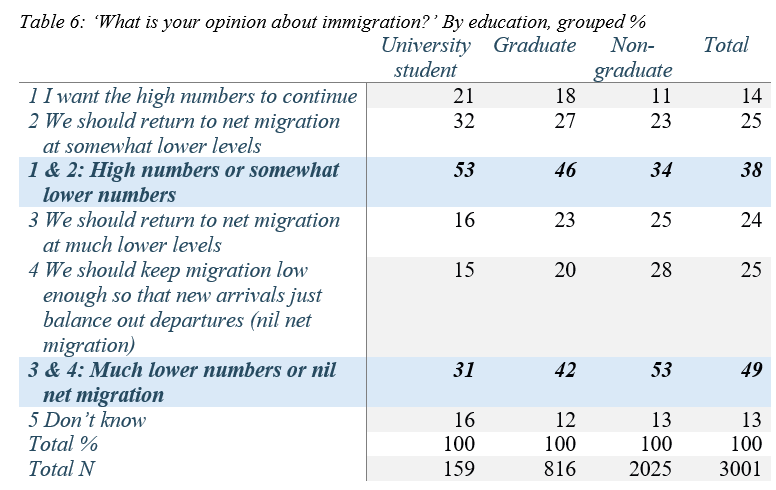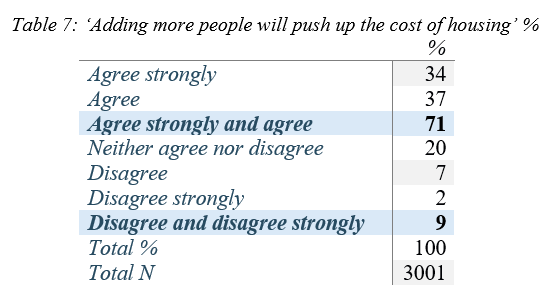Following the biggest immigration surge in Australia’s history, which saw a record 549,000 net overseas migrants land in the year to September 2023, The Australian Population Research Institute (Tapri) has released a comprehensive survey showing that Australians comprehensively reject high immigration and a Big Australia.

Tapri’s December 2023 national survey of 3000 voters (published April 2024) shows a large and growing voter constituency concerned about the level of immigration. This is mainly composed of older voters and non-graduates.
This constituency has expanded, despite support from the business lobby, the Labor Government, and the Treasury for a high intake, and despite the consensus among many opinion leaders that any criticism of immigration is probably racist.
Below are the extracts from the survey pertaining to immigration. There are also sections on The Voice referendum, cost-of-living and housing crises, and the overall political situation, which you can read in Tapri’s full report.
Immigration:
The Tapri question on immigration levels began with some information: ‘Since Australia’s borders were re-opened after the pandemic, net migration (arrivals minus departures) has increased. In the year to May 2023 net migration reached 454,000. This is the highest number on record.’
Respondents were then asked ‘What is your opinion about immigration?’

By December 2023, some 49 per cent of voters wanted much lower levels, or no net increase in immigration at all (this means new arrivals are balanced out by departures).
By comparison, 38 per cent of voters favoured either no cut or ‘somewhat lower levels’ (which we interpret as support for continued high migration). Another 13 per cent of voters did not have an opinion.
The 49 per cent opposed to high immigration is well up on the 42 percent share who felt this way in Tapri’s September 2022 survey.
We also asked questions which probed why voters supported or opposed immigration.
Those opposed thought immigration was contributing to congestion, deteriorating access to services, notably hospital services, and to higher costs of housing. The strongest concern was about the implications for the cost of housing (shown in Table 7).

Most voters also do not think population growth is vital for Australia’s future. They are out of tune with Big Australia advocacy. A decisive 71 percent said that Australia does not need more people (Table 8).

At the time of writing (April 2024) immigration had not become a major political issue. This is partly because no major political party has tried to make it an issue.
Another factor is that though many home owners share a concern about the plight of young people in the housing market, the fact is that they are on the winning side of migrant-induced competition for housing.
Some 67 per cent of our sample of voters owned or were buying their home. This level may seem high, but it is because we are referring to voters, not residents.
The losers are among the third of voters who do not own a home. They are mainly young people.

